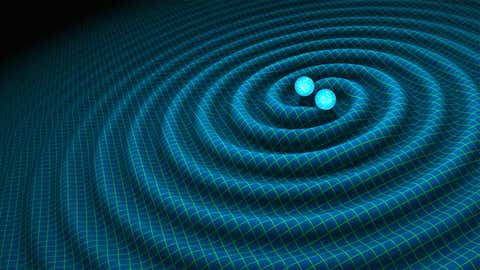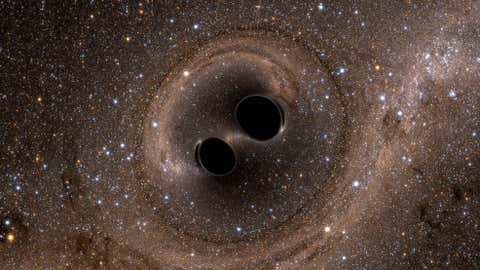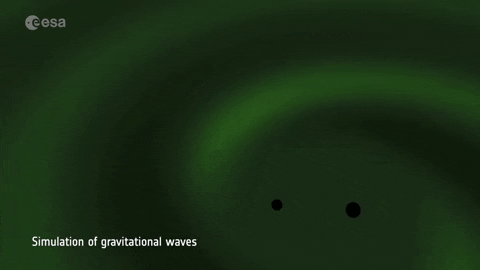[ad_1]

An artist’s impression of gravitational waves generated by binary neutron stars.
(R. Hurt/Caltech-JPL/NASA)
In 1916, Albert Einstein first predicted the existence of gravitational waves through his theory of general relativity. These waves were described as ripples in the space-time continuum and were estimated to move at the speed of light. Later, certain violent events in the universe were thought to produce these ripples, for instance, the collision of massive black holes or the neutron stars. But for nearly a century, we had no empirical proof for these waves!
However, in September 2015, the highly sensitive Laser Interferometer Gravitational-Wave Observatory or LIGO in the United States made an unusual observation. The LIGO arms sensed a weak signal that was as short as one-fifth of a second. But, that was the ‘voila’ moment for astrophysicists! For the first time, they had traced and detected the presence of enigmatic gravitational waves.
The investigations revealed that waves originated from the collision of the two massive black holes, which took place about 1.3 billion light-years away. This collision sent a vibration across the universe, and LIGO finally picked undulation more than a billion years later.
Have you ever wondered what makes gravitational waves so important? In this three-part article series, Dr Parameswaran Ajith answers some of the most concerning questions around these fundamental waves. He is an astrophysicist at the International Center for Theoretical Sciences (ICTS) in Bengaluru and has done significant work studying different aspects of gravitational-wave astronomy.
Can you please briefly explain what gravitational waves are?
We know that light is the electromagnetic wave—oscillations in electric and magnetic fields propagating extremely rapidly in spacetime. Gravitational waves are oscillations in spacetime itself.
Einstein’s General Theory of Relativity describes gravity as the curvature of spacetime. Any massive object would curve the spacetime around it. The motion of such objects would produce oscillations that travel at the speed of light. So we can think of gravitational waves as ripples in spacetime.
What causes gravitational waves?

This computer simulation shows the collision of two black holes, which produces gravitational waves.
(Simulating eXtreme Spacetimes (SXS) project)
Any accelerated motion of any massive object will produce gravitational waves. However, most of the time, these waves are too weak to be detected using any conceivable technology. “Loud” waves are produced only when extremely massive and compact (dense) objects move at very high speeds—for example, two black holes colliding with each other. These are very rare events, happen in a galaxy once in only several million years.
Why is it essential to observe and understand these waves?
Out of numerous reasons to study gravitational waves, one important aspect is that these waves are as fundamental to physics as electromagnetic waves. Studying these waves is one of the most potent ways of understanding gravity.
Until now, we have learned most of the things about the universe from astronomical observations of electromagnetic waves. Studying gravitational waves offers an entirely different way of understanding the universe. Gravitational waves carry completely different information on the source.

Simulation of gravitational waves
(ESA)
For example, light from a collapsing star (called a supernova) tells what is happening at the expanding envelope of the star. In contrast, gravitational waves can tell what is happening in the deep interior.
There are many astronomical phenomena, such as collisions of black holes that do not emit any light but plenty of gravitational waves. Also, gravitational waves are the only means of finding out what happened in the universe fractions of seconds after the Big Bang. Astronomy using gravitational waves is a new window to the universe.
The interview is a part of a series titled Ask An Astronomer. This interview series on gravitational waves is published in three parts, published each day from July 12 onwards.
**
For weather, space, environment, and COVID-19 updates on the go, download The Weather Channel App (on Android and iOS store). It’s free!
[ad_2]

